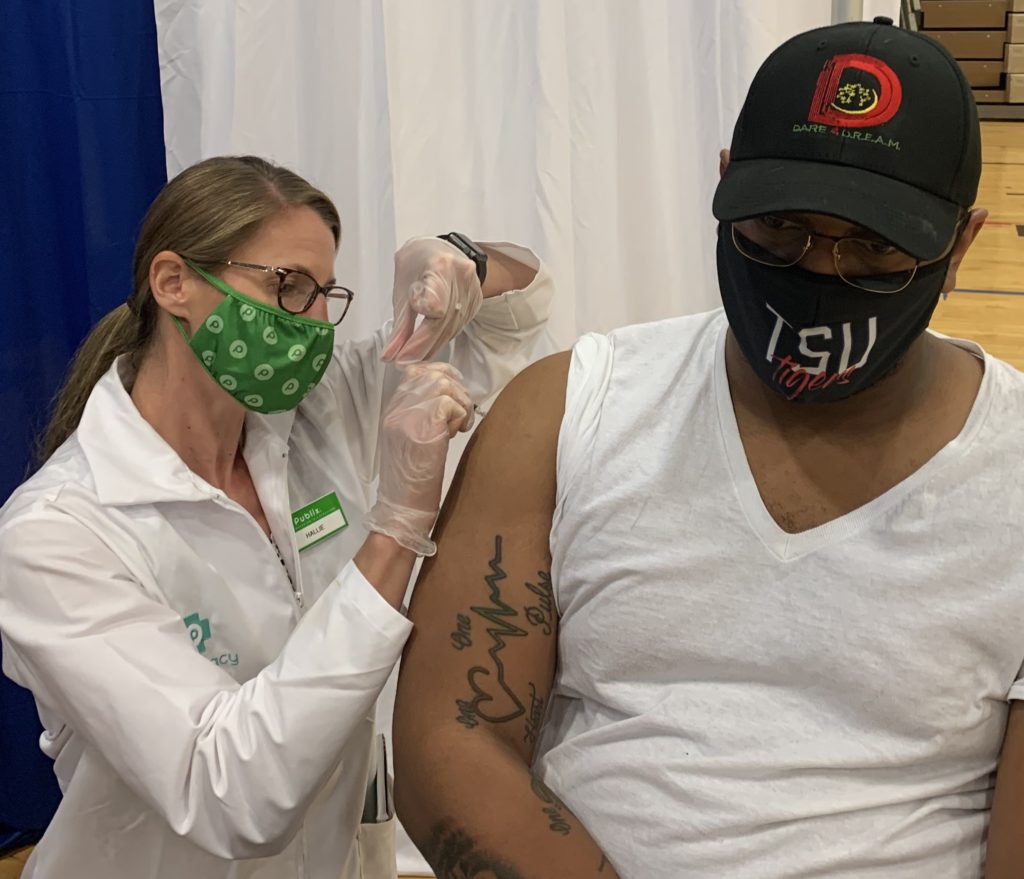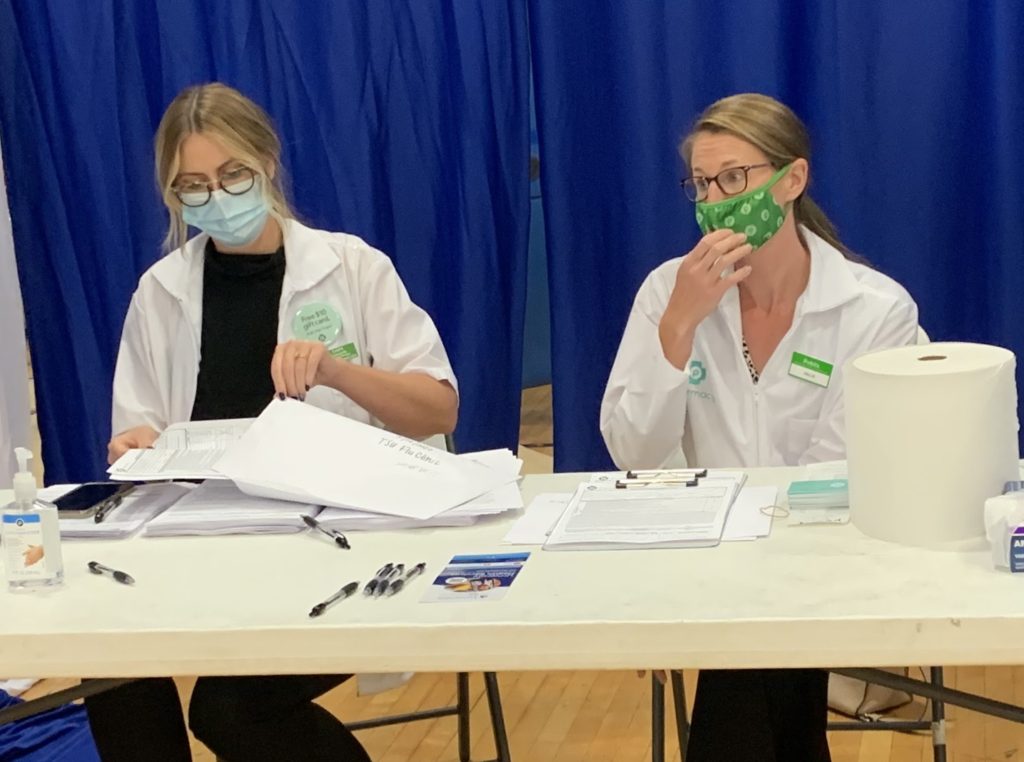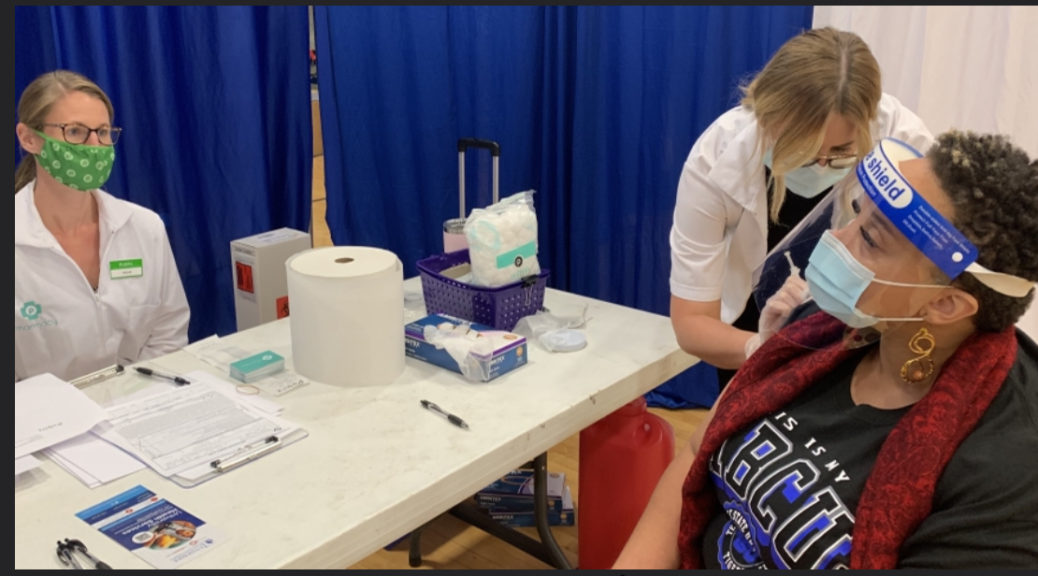NASHVILLE, Tenn. (TSU News Service) – Tennessee State University is offering free flu vaccines to all students through a partnership with Publix. On Nov. 10, nurses from Publix Pharmacy made their first campus visit to administer the vaccines. Students who signed up to be vaccinated also received a $10 Publix discount card.

Kirsten Cole, a sophomore health science major from Chicago; and JC DeMarko V. Burnett-Gordon, a second-year graduate student from Nashville, were among the first students in line to get vaccinated.
“I am really glad to get this (shot) for free,” said Cole. “I hope other schools are making this easy for their students because these are really scary times for us, especially being this far away from home.”
For Burnett-Gordon, who lives off campus, he is also glad “TSU is stepping up” to keep its students safe.
“There is a whole lot going on out there with COVID and everything else,” he said. “It is nice to get this out of the way, so there is no mix-up.”

The TSU Student Health Center, which is working with Publix to administer the flu shots, strongly encourages students to take advantage of the free opportunity.
Dana Humphrey, head nurse in the Student Health Center, said based on student needs, the center will coordinate with Publix to determine dates and times for subsequent campus visits.
Ordinarily, she said it costs about $30 for a flu shot, but the university is underwriting the cost for students. The shots are also available to employees through their insurance. When being administered on campus, the vaccines are available on a walk-in basis. No appointment is necessary, but students must first check with the Student Health Center for the schedule.
With the new surge in COVID-19, combined with the seasonal flu this winter, officials say this could put a serious strain on the health care system. Accordingly, public health experts are encouraging adults to get their flu shots to reduce the chances of hospitals being overcrowded with patients.
“The flu season and corona could confuse people because we have probably 10 diseases that have the same symptoms as the coronavirus,” said Dr. Wendelyn Inman, a TSU professor and infectious disease expert. “It is difficult to tell if you have corona or the flu. I would advise people to go for their flu shot, so that you know that at least you have that covered.”
Inman, who is also director of public health programs in the College of Health Sciences, was previously chief of epidemiology for the State of Tennessee.
Dr. Carolyn Davis, TSU’s assistant vice president for student affairs, said making the flu shots available to students was just the right thing to do.
“The health and safety of our students is always a major priority,” said Davis. “We made the vaccine free to our students to make sure they know it is available to them and right here on campus for their convenience. We are thankful to Publix for coming on our campus to administer the vaccine.”
According to CDC guidelines, annual flu vaccination is recommended for everyone six months of age and older, with rare exceptions, because it is an effective way to decrease flu illnesses, hospitalizations, and deaths.
For more information on the Student Health Center, visit http://www.tnstate.edu/campus_life/healthcenter_brochure%20072914a.pdf
Department of Media Relations
Tennessee State University
3500 John Merritt Boulevard
Nashville, Tennessee 37209
615.963.5331
About Tennessee State University
Founded in 1912, Tennessee State University is Nashville’s only public university, and is a premier, historically black university and land-grant institution offering 39 bachelor’s degree programs, 24 master’s degree programs, and seven doctoral degrees. TSU is a comprehensive research intensive institution with a R-2 Carnegie designation, and has a graduate school on its downtown Avon Williams Campus, along with the Otis Floyd Nursery Research Center in McMinnville, Tennessee. With a commitment to excellence, Tennessee State University provides students with a quality education in a nurturing and innovative environment that prepares them as alumni to be global leaders in every facet of society. Visit the University online at tnstate.edu.






